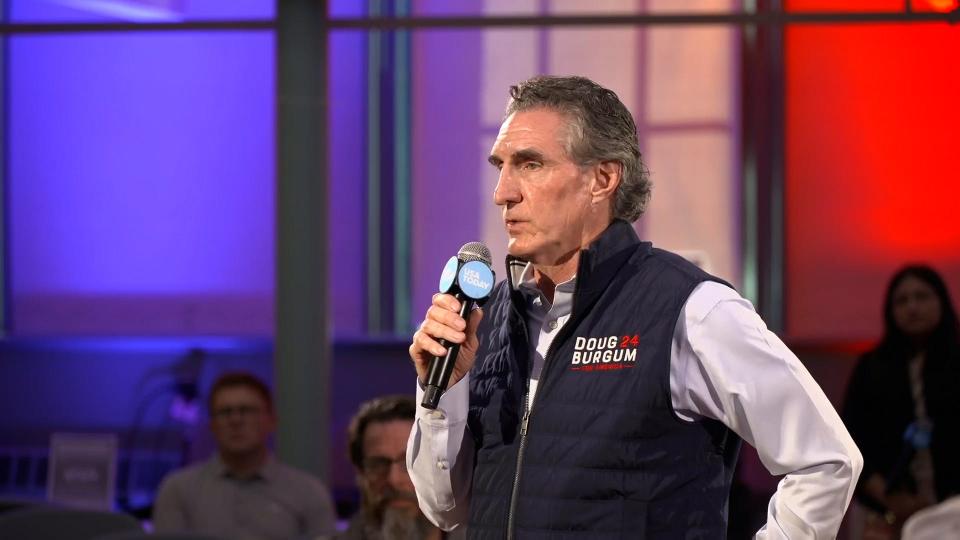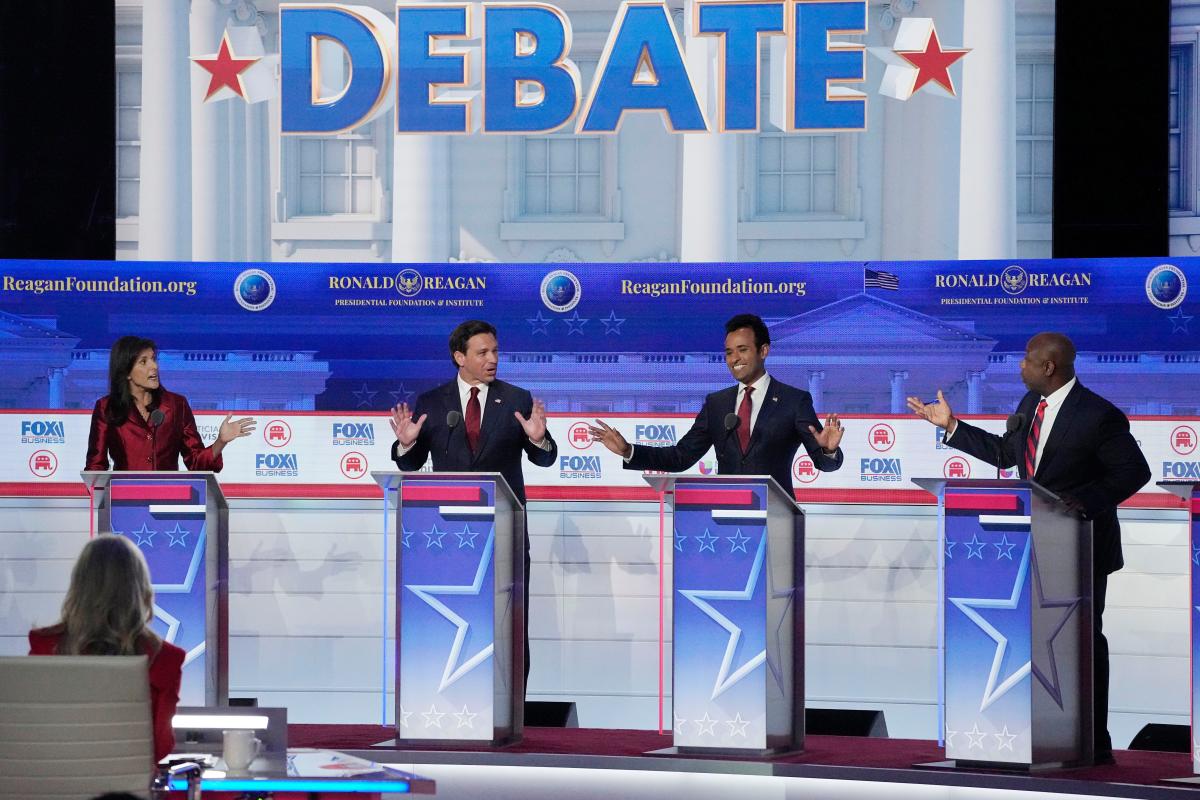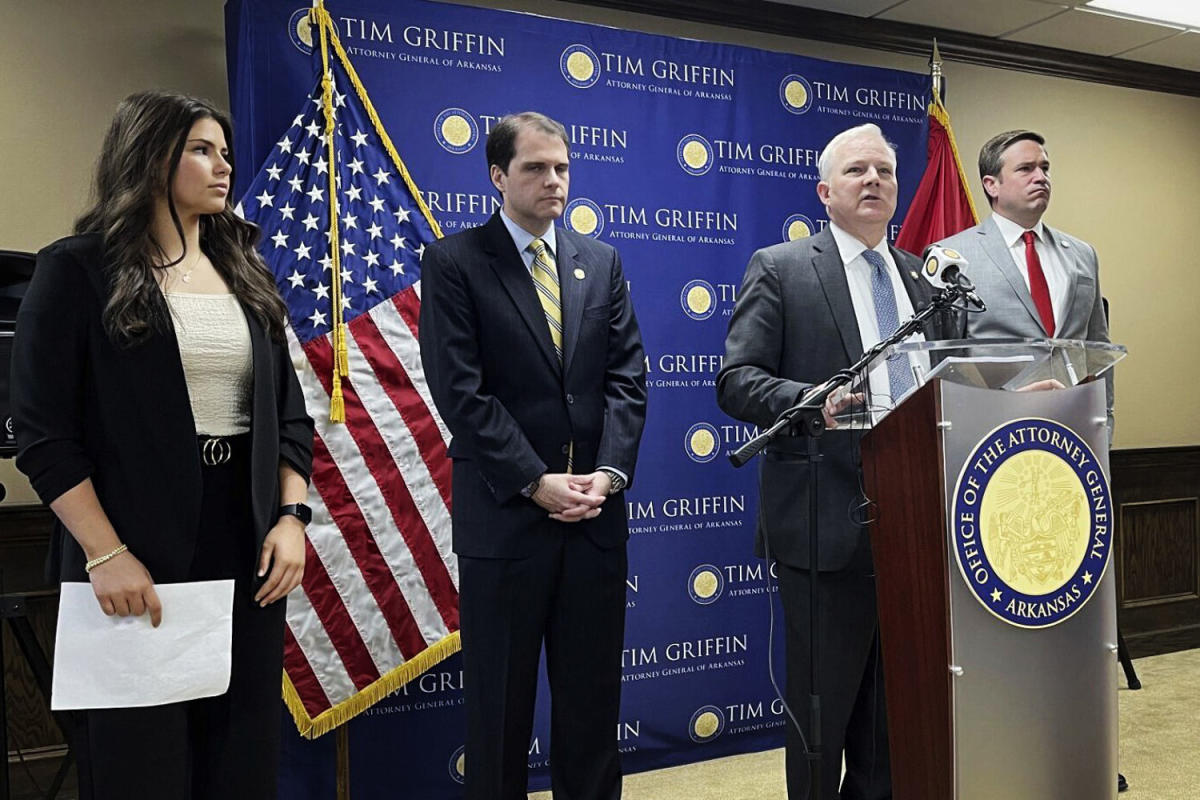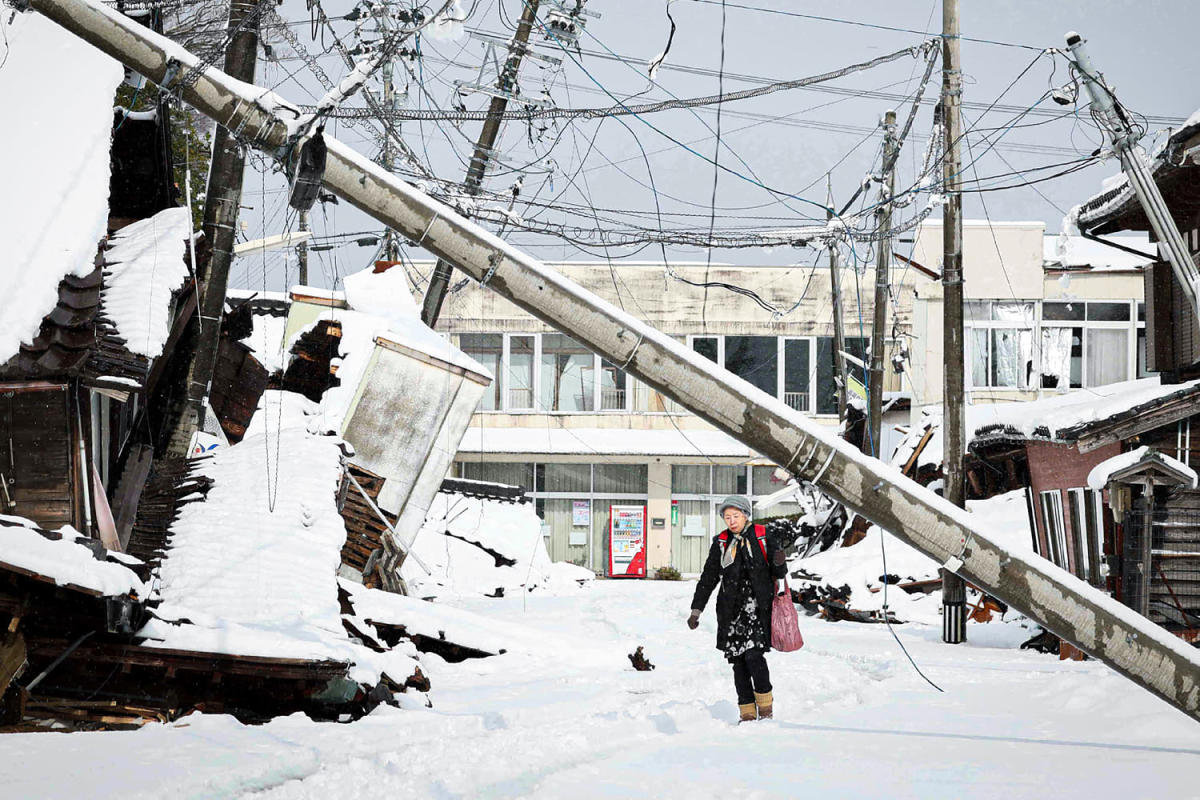In the days after a mass shooting roils the nation, lawmakers searching for solutions often point to the need for mental health care reform, even as others call for gun control. Last month, when a gunman who had been treated at a psychiatric hospital took the lives of 18 people in Lewiston, Maine, mental health took center stage again, particularly on the 2024 campaign trail.
Candidates vying for the Republican nomination highlighted the tragedy, arguing that the next president must prioritize the mental health crisis in America.
This time, though, those calls weren’t exclusive to the issue of mass violence.
For months, presidential contenders have raised the need for mental health reform in response to a host of voter questions in early primary states – from how they would address the ongoing opioid epidemic to the well-being of children after the Covid-19 pandemic.
“We have to treat this like the crisis it is,” former South Carolina Gov. Nikki Haley told voters during a CNN town hall in June. “We have to make mental health a number one priority.”
Former President Donald Trump and several other hard-right candidates have zeroed in on mental health as part of a plan to confront rising rates of homelessness in the U.S., suggesting that institutionalizing some patients with mental illness could solve the crisis.
And Haley and North Dakota Gov. Doug Burgum have floated multi-pronged approaches to tackling mental health in different areas of American life, including by advocating for more trained counselors at schools across the country.’

“Folks, this mental health crisis is something we need to face together as a country,” President Joe Biden said during a speech earlier this year.
While the methods of addressing the issue vary, the mere fact of the conversations – and that they move beyond the arena of gun violence – give some advocates hope that mental health could soon emerge as an area of bipartisan consensus at a time when the federal government is plagued by partisan politics.
An expanding crisis
Hannah Wesolowski, chief advocacy officer at the National Alliance on Mental Illness, sees the rising prominence of the issue as an inevitable result of the record number of Americans dealing with conditions like depression and anxiety.
“We know now, more than ever, that people need care,” Wesolowski said. “The conversations for better or worse show that there’s recognition that we have to do something. We cannot sit by and wait.”
Nearly 30% of adults in the U.S. have been diagnosed with depression at some point in their life, according to a recent Gallup survey. That’s roughly 10% more than in 2015.
And the rates in adolescents are even more alarming.
Over 20% of children experienced some mental health disorder in 2021, with more than one in five seriously considering suicide. Between 2009 and 2019, suicidal behaviors among high school-aged students rose by 40%, according to the National Institute of Mental Health.
Presidential candidates are addressing the issue, Wesolowski said, “because they know if they don’t address it, we’re going to face a tsunami of mental health consequences in the future.”
Putting faces to the crisis
But it’s a long and twisted road from the White House to a troubled household or affected community.
John Broderick, a former chief justice of the New Hampshire Supreme Court, can put countless faces and names to America’s dire statistics. For the past seven years, Broderick has traversed New England, speaking in packed school gymnasiums to children and teenagers facing mental health struggles.
Broderick often leaves those speaking engagements with his jacket stained in tears. The children, he said, are happy to have someone to talk to. Almost all of them attribute their stress, anxiety and depression to one thing: being over scheduled.
Between organized sports, and mounting pressure to take challenging courses, Broderick believes part of the mental health crisis stems from the loss of childhood in America.
That’s not necessarily something that can be solved on a federal level, he argued.
“The mistake we make is we go right to policy,” Broderick told USA TODAY. “‘What legislation could we pass? What appropriation could we make? And then we’ll help solve the problem.’ Don’t get me wrong, some of that is required. But ultimately, it’s effectively a community-based problem.”
When it comes to policy, he believes lawmakers often over-complicate the issue.
“My question is, so what are you doing about it? What have you done about it? We don’t have enough psychiatrists, psychologists, nurse practitioners. We don’t because we don’t pay them. We don’t reimburse them. We don’t incentivize,” he said.
“It’s not rocket science.”
Mental health a ‘No. 1 priority’ for candidates
For Burgum, the North Dakota governor polling in the single digits in the 2024 race, the consequences of the mental health crisis hit home. Burgum’s wife, Kathryn, struggled with alcohol addiction for close to three decades and, after finding sobriety 20 years ago, has become a vocal advocate for eliminating the stigma around mental health.


With the right leadership, Burgum told USA TODAY, he believes a wave of bipartisan reforms may be possible. The key to getting there, he said, is treating the issue in the same way as other major health conditions – like cancer and chronic illness.
Haley, who is jockeying to become the GOP’s alternative to former President Donald Trump, has similarly described rising rates of mental illness as the “cancer in America that no one has dealt with.”
Both she and Burgum have said that, if elected, they would smooth many of the snags in the mental health care system that advocates say must be addressed – from a lack of trained therapists and physicians to poor insurance coverage.
They each have called for adding behavioral health specialists to every K-12 school in America and have argued that treating mental health key to reducing addiction in America.
But, when it comes to concrete policy plans, both candidates have remained vague.
Congress’s bipartisan vision
In Congress, where mental health has become a topic of increasing interest, concrete proposals are similarly scarce.
Just last month, a group of ten senators created the first-ever Bipartisan Mental Health Caucus in the chamber, aimed at eliminating stigma and strengthening policy work on the issue.
The group, comprised of five Democrats and five Republicans, so far have all agreed on one thing: “The need to share stories to raise awareness, raise the priority level,” Sen. Alex Padilla, D-Calif., a founding member of the caucus, told USA TODAY.


“Before you even get to talking about policy and funding and treatments, and research and whatnot, it begins by overcoming stigma and really normalizing the conversation,” Padilla said.
For him, that has meant sharing the story of his mother-in-law’s struggle with manic-depressive disorder and schizoaffective disorder, along with his family’s ordeal to get her treatment – from dealings with doctors to navigating the complex insurance system.
In terms of crafting policy, however, Padilla admitted that the young caucus has so far only agreed on the issues they want to tackle – workforce shortages and patient cost challenges.
He’s not worried about finding consensus, though. And to anyone who is cynical about Congress’ recent bipartisan track record, Padilla said he would “happily point” to things like the 988 Suicide and Crisis Lifeline, which gives those needing emergency mental health services a number to call. The crisis line was adopted with the help of Congress in 2020 and is far from the only mental health-related measure the legislators have passed in the last few years.
After 21 children were killed in the horrific Robb Elementary School shooting in Uvalde, Texas, last year, Congress passed a sweeping bill that allocated $300 million in mental health funding, including $280 million in competitive grants for mental health staffing in schools. Later that year, it allocated additional money to health programs through the Restoring Hope for Mental Health and Well-Being Act – passed with an overwhelming 402 votes in the House.
Could some rhetoric threaten progress?
Still, while conversations around mental health are gaining prominence, Wesolowski expressed concern that increasing calls for institutionalization of the mentally ill by some candidates in the 2024 race could stymie progress.
Trump, Florida Gov. Ron DeSantis and entrepreneur Vivek Ramaswamy have all proposed re-establishing mental hospitals, many of which were closed in the mid-20th century with the advent of psychiatric drugs, as a way to deal with the mental health crisis.


“We de-institutionalized some 30 or 40 years ago. You know, I’m not sure that was the right thing to do,” DeSantis said during a town hall in August, referring to a move by President Ronald Reagan that pushed the financial responsibility for mentally ill patients to states and local communities. “I see all these homeless in Los Angeles and San Francisco and some of these other liberal cities, they’re doing drugs or doing all this, but their mental health is ultimately the root of this.”
Ramaswamy, who has shared similar views, told USA TODAY he would consider redirecting federal dollars currently being spent on the prison system or other areas of healthcare toward “fostering the reopening of mental health institutions” that focus on faith-based care.
But Wesolowski expressed concern that institutionalization policies could further stigmatize those with mental health conditions.
“We can’t just focus on locking people up or talking about people as if they are some other population. They’re friends, they’re neighbors, they’re our spouses, our children,” she said, arguing that efforts to re-institutionalize people serves as a “misinterpretation of what is needed.”
This article originally appeared on Aberdeen News: Here’s what 2024 candidates are saying about mental health

Amanda Smith is a dedicated U.S. correspondent with a passion for uncovering the stories that shape the nation. With a background in political science, she provides in-depth analysis and insightful commentary on domestic affairs, ensuring readers are well-informed about the latest developments across the United States.








